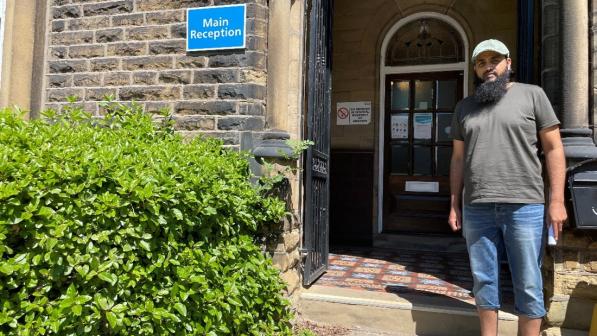Cycling for wellbeing

What is wellbeing?
Wellbeing is a concept that comprises two key components; functioning well and feeling good.(1)
For the purposes of this article, we will focus on mental wellbeing, which is a concept that was first introduced by the World Health Organisation in 1948.
Many definitions have been presented since this time, and whilst there is no universal standard definition, a summary provided by The Faculty of Public Health provides a comprehensive and introductory overview of mental wellbeing, which includes various factors including having the capacity to:
- realise our abilities, live a life with purpose and meaning, and make a positive contribution to our communities
- form positive relationships with others, and feel connected and supported
- experience peace of mind, contentment, happiness and joy
- cope with life's ups and downs and be confident and resilient
- take responsibility for oneself and for others as appropriate. (2)
Improving our mental wellbeing can be instrumental to improving outcomes in other areas of our lives.
Moving for health and wellbeing
Just a few words on the difference between physical activity and exercise.
Physical activity is any movement of your body that works your muscles and uses more energy than resting.
Exercise is a subcategory of physical activity that is often structured, planned, repetitive and purposeful, and is carried out with the aim to improve or maintain health or fitness. (3)
Whatever your age and however you choose to move, find something you enjoy doing, and keep doing it, because mental health and physical health are inextricably linked.
Reassuringly, there is now an established volume of sound scientific evidence to support the message that being physically active is not only good for your physical health, it will benefit your mental health and wellbeing too!

Stress
Physical activity can be very effective in relieving stress.
When we face a situation that causes us to feel threatened or out of balance in some way, our body automatically activates the "fight or flight" mode.
This mode is a defensive mechanism, designed to prepare us for an emergency and is referred to as an acute stress response.
It represents a physiological reaction that has activated the sympathetic nervous system and in doing so, triggered the release of various hormones including adrenaline, noradrenaline and cortisol.
This hormone-mediated response causes us to experience uncomfortable physical sensations; we feel tense, our heart races and we tend to sweat more.
Many of you reading this will be familiar with this scenario.
It is not uncommon to experience stress, particularly in the current circumstances.
The good news however, is that scientists have found that physically fit individuals have a reduced stress response. (4)
Sleep
It is crucial to recognise that wellbeing is only possible after our basic needs are met.
Sleep is an essential and involuntary process, and is as important to our bodies as food, water and breathing.
Without sufficient sleep we are not able to function effectively. The evidence suggests that exercise benefits sleep. (5)
Exercising to promote a good nights sleep will in turn have a positive impact upon our overall sense of wellbeing.
Self-esteem
Self-esteem is considered fundamental to psychological wellbeing.
Self esteem is also a key indicator of adjustment to life demands and emotional stability.
Self-esteem refers to how we feel about ourselves, and our perceived self-worth.
Studies across males and females, in children, adolescents, young adults, adults and older people have all demonstrated a positive relationship between physical activity and self-esteem. (6)
This evidence is very relevant to wellbeing, because it highlights the real potential for physical activity to enhance our self-esteem, and ultimately help us to feel better about ourselves.
When we feel better about ourselves, we have a healthy self-esteem and we tend to feel positive about ourselves and life in general, which all culminates in us feeling better able to cope with life's ups and downs.
Mood, depression and anxiety
Regular physical activity is associated with better mental health.
Recent research has found that individuals who exercise reported 43% fewer days of poor mental health at follow up, compared to those who did not exercise.
All exercise types were associated with a lower mental health burden compared to those who weren’t exercising.
Interestingly, cycling accounted for one of the largest associations at 21.6%.
More exercise wasn't always better, with a frequency of between three to five times per week and durations of 45 minutes demonstrating the largest associations. (7)
Encouragingly, a recent meta-analysis concludes that currently, the available evidence supports the notion that physical activity can confer protection against the emergence of depression regardless of age and geographical region. (8)

Green exercise: Get on your bike
If you combine the physical and mental health and wellbeing benefits of exercise and physical activity, along with the distinct benefits of being immersed in green space and connecting with the natural environment – then you have 'green exercise'.
Cycling outside offers an excellent opportunity for you to move your body, whilst simultaneously exploring the great outdoors.
In fact, cycling is unique, in that it offers a wonderful journey to wellbeing on wheels!
References
- New Economics Foundation: Aked J, Marks N, Cordon C, Thompson S (2008) 'Five Ways to Wellbeing' [Accessed on 07.06.2020].
- Faculty of Public Health (2010). 'Concepts of Social and Mental Wellbeing' [Accessed on 07.06.2020].
- World Health Organisation (2020). 'Global Strategy on Diet, Physical Activity & Health' [Accessed on 07.06.2020].
- Wood, C.J., Clow, A., Hucklebridge, F. et al (2018). Physical fitness and prior physical activity are both associated with less cortisol secretion during psychosocial stress, Anxiety, Stress & Coping, 31:2, 135-145,
- National Sleep Foundation (2003) '2003 Sleep in America Poll' [Accessed on 07.06.2020].
- Lindwall, M. & Asci F.H. (2014) Physical Activity and Self-Esteem. In: A. Clow & S. Edmunds (eds). Physical activity and mental health . Champaign, IL: Human Kinetics.






